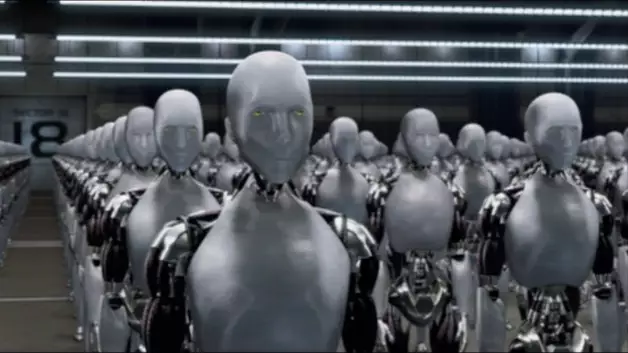
An apocalypse, in any form, you have to admit is slightly exciting.
I mean - until the inevitable death and extinction of the human race - hiding in shopping centres, barricading doors and obliterating zombie or robot heads with shotguns sounds pretty fun.
Hey, it worked in Dead Rising.
Advert
But inevitably the shine does wear off and it becomes apparent that you're going to die and life (or what's left of it) is a bit shit. And now, Google is claiming that we have an estimated time of arrival for that feeling.
The company's chief of engineering, Ray Kurzweil, reckons robots "will reach human intelligence by 2029," Metro reports. There's no mention of any specific humans, so we could literally be seeing a whole host of Kerry Katona-inspired cyborgs.
Advert
If you've got Amazon's Alexa, or indeed use Siri on your phone, then you'll know just how far Artificial Intelligence has come. However, we're not quite at the point where anything has passed the Turing test, which basically tests whether technology can produce intelligence not too dissimilar to that of a human.
Kurzweil is prepared for when that day comes, claiming that it 'will change the nature of humanity itself', with life as we know it coming to an end in 2045.
Over the next decade, breakthroughs will reportedly be made in General AI, with humans and robots becoming comparable.
Advert
Following that, there's only one more hurdle to jump, and that's artificial super-intelligence (API). Sounds good, doesn't it? Well it's not. It's the kind of shit that gave Will Smith a right hard time in I, Robot, and none of us are anywhere near skilled or handsome enough to win that battle.
"We project our own humanist delusions on what life might be life [when artificial intelligence reaches maturity],' philosopher Slavoj Žižek says.
"The very basics of what a human being will be will change.
Advert
"But technology never stands on its own. It's always in a set of relations and part of society."
If we're honest, if they can work a hoover, do the dishes, pull a pint and play FIFA with you, I think we should be welcoming them with open arms.
Featured Image Credit: 20th Century Fox